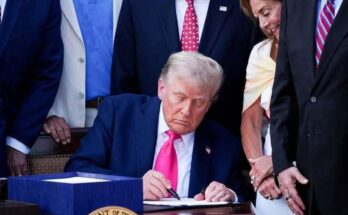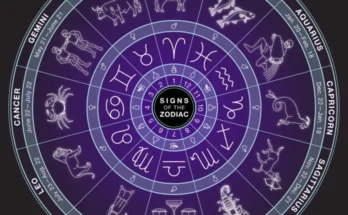
Losing someone we love is one of life’s most painful passages. Whether it is a spouse, a parent, a dear sibling, or a lifelong friend, the silence they leave behind can feel unbearable. In those quiet hours of grief, many people wonder if their loved ones still linger nearby—watching, guiding, or sending comfort from beyond.
It is not unusual to sense something after such a loss: a gentle touch on the shoulder, a fragrance that seems to appear out of nowhere, or a moment of calm that arrives when you need it most. But how can we know whether these experiences are truly signs from a loved one’s spirit—or whether they are something else entirely?
For older adults, especially those who have said goodbye to many dear companions over the years, these questions carry deep meaning. Understanding the difference between the comforting presence of a loved one and other unexplained energies can bring peace of mind and help ease the journey of grief.
1. The Energy They Carry
The first clue lies in the energy of the experience.
When the spirit of someone we love draws near, the feeling is almost always gentle and familiar. Many describe it as if a warm blanket has been wrapped around their shoulders. A sense of safety, peace, or even joy often washes over the heart. It feels like love itself reaching out across time and distance.
Other energies, however, tend to stir the opposite feelings. Instead of comfort, there may be unease. Some report sudden chills, a heaviness in the room, or a feeling of being watched. Instead of warmth, there is a coldness. If you walk away from the moment unsettled rather than uplifted, chances are it is not the presence of your loved one.
2. The Nature of the Signs
Loved ones who wish to connect often use personal, meaningful signs. These signs usually have deep ties to your shared history:
- The sudden scent of your mother’s favorite perfume when no bottle is near.
- A song on the radio that carried special meaning in your marriage.
- A cherished photograph falling from a shelf at a moment when you were thinking of them.
These signs carry intimacy. They remind you of specific moments and memories, as if your loved one is whispering, I am still with you.
By contrast, other forces may cause disturbances that feel random and unsettling—loud knocks, flickering lights, shadows that do not match any source. These events lack the personal touch. They feel disconnected from your story, offering no comfort or reassurance.
3. The Emotional Impact
Perhaps the clearest difference is in your emotions afterward.
Encounters with the spirit of someone who loved you in life often bring tears, but not of fear. They are tears of release, gratitude, or even joy. Many people describe these experiences as profoundly healing, easing the heavy burden of grief.
Other forces tend to leave the opposite effect. Instead of peace, you may feel drained, anxious, or unsettled. Your body may tense, and your heart may race. True love rarely inspires fear. If an encounter leaves you frightened rather than comforted, it is more likely an external energy unrelated to your loved one.
4. Timing and Context
Spirits of loved ones often appear at meaningful times. You may feel their presence on anniversaries, birthdays, holidays, or during life events when you long for their guidance. Their arrival seems intentional, almost as if they are reminding you that you are never truly alone.
Other energies, however, tend to appear suddenly, without any connection to your personal journey. Their timing can feel disruptive—like an interruption rather than a gift. That difference in context can be a vital clue.
5. How to Respond
If you believe you are sensing a loved one’s spirit, the best response is gratitude. A simple acknowledgment—whether through prayer, a few heartfelt words, or the lighting of a candle—can strengthen the bond. These small acts invite peace and remind you that love transcends even the boundaries of death.
If, however, you suspect that the energy is something else, it is important to set boundaries. Many people find comfort in surrounding themselves with positive affirmations, reciting familiar prayers, or asking for spiritual protection through their faith. Others use simple rituals that bring peace, such as keeping their home filled with light, music, or symbols of hope.
What matters most is creating an environment where you feel safe and grounded.
6. Trusting Your Intuition
At the heart of it all lies intuition. Deep down, most of us can tell whether a presence is loving or unsettling. That inner knowing is powerful.
When the feeling is warm, familiar, and filled with love, trust that it is your loved one reaching across the veil to remind you of their care. When the feeling is confusing, heavy, or fearful, trust that too—and take steps to protect your peace.
Finding Comfort in the Mystery
For many seniors, questions about life after loss become part of everyday reflection. Each goodbye we face stirs up memories of those we have already lost. It is natural to seek reassurance that love does not end, that the bonds we wove through a lifetime continue beyond this world.
While no one has all the answers, countless people have felt moments of unmistakable comfort—a fragrance, a song, a gentle presence that cannot be explained away. These experiences remind us that love is stronger than absence, and that memory itself is a sacred bridge between worlds.
At the same time, discernment is important. By noticing how an encounter makes you feel—comforted or fearful, peaceful or unsettled—you can better understand whether you are sensing the spirit of someone dear or something unrelated.
Closing Thoughts
Grief often leaves us searching for signs, and those signs can be both mysterious and powerful. Distinguishing between the spirit of a loved one and other energies helps bring clarity, reassurance, and a sense of calm.
If you sense love, peace, and connection, allow yourself to be comforted. If you sense fear or disruption, remember that you have the power to protect your heart and your home.
Most of all, trust that the love you shared with those who have passed continues to shape your life. In quiet moments, in gentle reminders, and in the very strength that carries you through, their spirit lives on.


